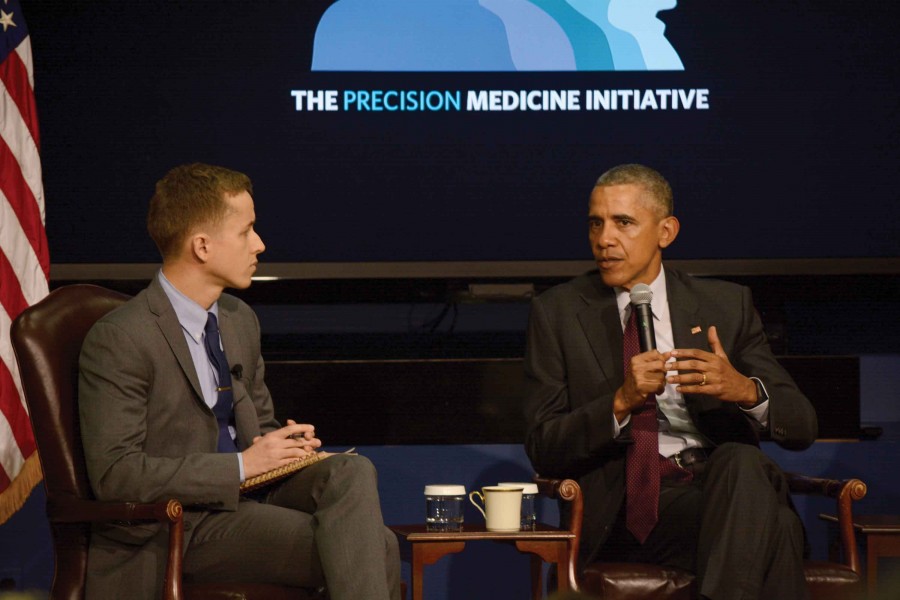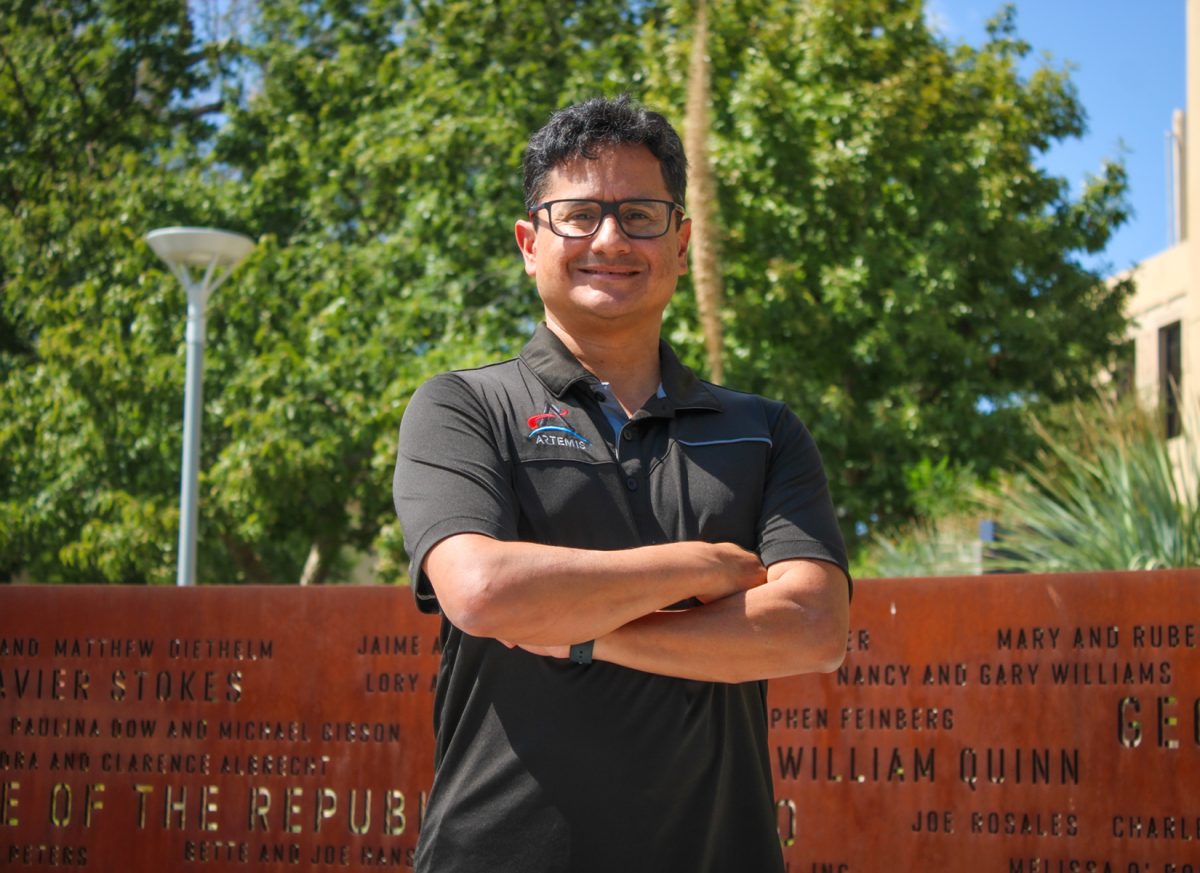WASHINGTON – President Barack Obama is asking for a donation of something other than money: He’s wants the medical records of a million people to improve health care.
It’s part of a program to create medicines and treatments for individual patients. He discussed the program Thursday at the White House. The volunteers would share their medical records to create cheaper, more effective health care.
The Precision Medicine Initiative is a part of Obama’s 2016 budget. A panel consisting of Obama and other precision medicine advocates spoke about the importance of precision medicine. The initiative is a $215 million investment in research, technology and policies to create a more efficient way of prescribing medicine to treat patients with unique needs.
“This is an extraordinarily exciting time for medicine and biological sciences and a lot of this traces back to the work that was done in mapping out the human genome, which was an enormous endeavor,” Obama said.
Obama said every patient’s needs are different, and the initiative can lead to identifying diseases and individualizing treatments. He said it will reduce costs, provide better care and increase effectiveness of the health-care system.
He said the key is to build the database because records are kept in a way that prevents sharing.
“It’s in a hospital here, a hospital there, a doctor here, a lab there, and so the goal here is if we can pull and create a common database of ultimately a million people that’s diverse … we can start seeing patterns that we might not have seen before,” he said.
Obama wants universities to collaborate and be more open to sharing their research.
President Barack Obama says his Precision Medicine Initiative will create research, technology and policies to produce better medicine at a cheaper cost. Dr. James Hamblin, moderated a panel discussion Thursday at the White House to discuss the president’s initiative. SHFWire photo by Tia Rinehart
President Barack Obama says his Precision Medicine Initiative will create research, technology and policies to produce better medicine at a cheaper cost. Dr. James Hamblin, moderated a panel discussion Thursday at the White House to discuss the president’s initiative. SHFWire photo by Tia Rinehart
He said he plans to ensure privacy so people are more likely to allow the use of their medical records.
“Because all of us potentially could have electronic medical records that, voluntarily with strong privacy protections we pool together so that researchers, practitioners, scientists can share, we may be able to accelerate the process of discovering cures in ways that we’ve never seen before,” Obama said.
Dr. Marston Linehan, chief of urological surgery at the National Cancer Institute, and his team identified the genes of the common forms of kidney cancer. He said he does not know how he would treat patients without precision medicine.
“It helps us decide what operation to do, whether to do an operation or not, what drug to give but most importantly our real goal is prevention and the president mentioned this,” he said. “Once we understand the genes to the pathway then we hope to be able to prevent those.”
Obama said precision medicine will save money over time because doctors won’t waste time prescribing drugs and treatments that don’t work.
Howard Look created Tidepool, an open-source data platform devoted to help treat type 1 diabetes. He said he became a “geek dad” when his daughter was diagnosed with type 1 diabetes in 2012.
He found an easier way to get data out of the devices his daughter uses every day a to deliver the precise amounts of insulin safely and effectively.
“By liberating the data from the device, we were able to come up with a much better way to deliver therapy and I think it just shows the power of engaged patients and how important it is to liberate the data,” he said.
Asked about precision medicine’s relevance to the opioid epidemic, Obama said a lack of precision medicine could lead to more problems.
“What it does speak to is the fact that, the more we know about how to treat a particular problem, the more effectively we treat that problem – over time, the more efficient and cost effective the health-care system will be,” Obama said.
He said precision medicine allows people to take a more active role in their own health.
“If we get this right, if we do precision medicine well and we give that information, that data to consumers, it gives them the ability to stay healthy for long periods of time and that’s hugely promising,” he said.
Reach reporter Tia Rinehart at [email protected] or 202-408-1490. SHFWire stories are free to any news organization that gives the reporter a byline and credits the SHFWire. Like the Scripps Howard Foundation Wire interns on Facebook and follow us on Twitter and Instagram.





